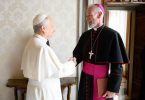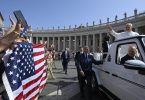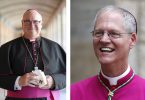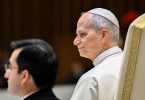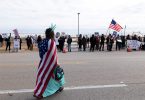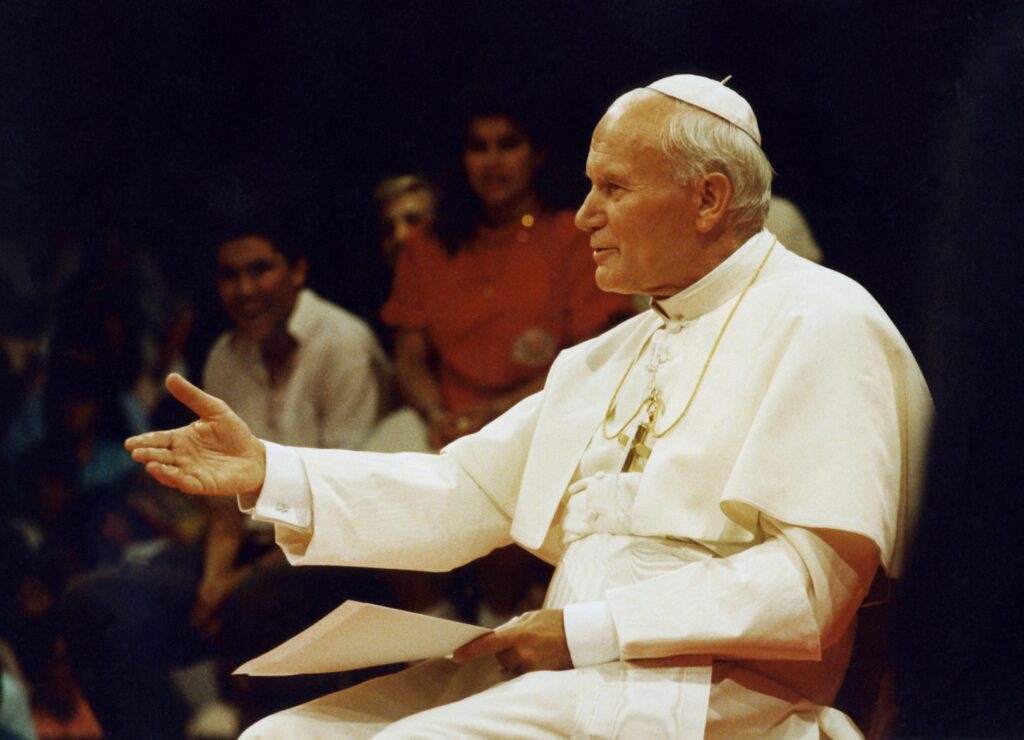
by Maria Wiering, OSV News
(OSV News) — Backcountry camping, white water rafting and rock climbing are key draws for campers at Camp Wojtyla, a Catholic camp in Colorado’s Rocky Mountains.
Named for Karol Wojtyla — better known to the world as St. John Paul II — the camp experience is immersion in both adventure and the Catholic faith for middle and high schoolers.
“We don’t rock climb during the day and then talk about Jesus at night. We do catechesis through rock climbing. We do catechesis through white water rafting, through the hiking. We use parts of the hike to teach about who God is, his plan for our lives, what the church teaches,” said Annie Powell, Camp Wojtyla’s executive director, who founded the camp in 2006 with her husband, Scott.
“A lot of it is just the dignity of the human person, and who we’re called to be as sons and as daughters (of God),” she said. “And JPII, my goodness, did such a good job of teaching us that.”
Camp Wojtyla is one of numerous Catholic organizations in the U.S. inspired by St. John Paul and his deep faith, intellect and cultural perception, and dedicated to his model of evangelization. Two decades after his death on April 2, 2005, their efforts continue to spread knowledge and understanding of his thought and spirituality within the Catholic Church and beyond.
Anthony Picarello, executive director of the St. John Paul II National Shrine in Washington, said that some elements of St. John Paul’s legacy — such as issuing a definitive Catechism of the Catholic Church in 1992, inaugurating World Youth Day in 1986 and cementing certain phrases such as the “culture of life” in the church’s lexicon — have become Catholic “pillars” without people giving thought to their origins.
On a larger scale, St. John Paul’s contributions to “the fall of communism (and) everything going on today and just all the history behind it. . . That’s just part of the structure of our world that he contributed to, and people may not be entirely conscious of it,” Picarello said.
The shrine, an initiative of the Knights of Columbus that drew 82,000 visitors in 2024, offers a permanent exhibit of St. John Paul’s life as well as a relic of his blood for veneration. Pairing the devotional with the intellectual is a core part of the shrine’s vision and considered in its temporary exhibitions as well, Picarello said. The shrine is hosting an exhibition on the Shroud of Turin through Easter, April 20, and then will open an exhibit on Divine Mercy. Both include history and themes close to St. John Paul’s heart and his 26-year pontificate.
Meanwhile, Picarello is interviewing experts for a series on the shrine’s YouTube channel on St. John Paul’s 14 encyclicals, which he describes as “prophetic” and “continually relevant.”
“It’s not just declaring timeless truths about the human person. . . but it’s also about understanding how we got here, and talking about what developments there were in our thought in the West, and trend lines that brought us to this point,” Picarello told OSV News. “It’s the nature and dignity of the human person.”
Human dignity is also the focus of the St. John Paul Legacy Foundation as it works to disseminate St. John Paul’s teaching on human love, marriage and sexuality known as theology of the body.
Launched just last year, the Pennsylvania-based foundation works closely with the Theology of the Body Institute and its founder Christopher West, who has worked to distill the teaching — first articulated during St. John Paul’s Wednesday audiences from 1979-1984 — to the masses.
Dave Sloun, the foundation’s executive director, said that theology of the body is key to understanding St. John Paul’s thought, and it has the power to create saints.
“It is possible to be holy,” he said, “and we need not turn away from the world with scepticism or suspicion, we need not spend our lives reacting against what’s wrong in the world, when we say ‘yes’ to what’s right in the world and we say ‘yes’ to the vision and the beauty and the call that God offers us and the way he reveals himself to us in our bodies as man and woman, that ‘yes’ is the answer.”
Teaching the theology of the body is also a component of the John Paul II Project, whose flagship program brings young adults to Krakow, Poland, for study and cultural immersion in the city where Wojtyla, as a young man, first attended university and then studied in secret, including as a seminarian, under Nazi and Soviet occupation. He later served as cardinal-archbishop of Krakow from 1963 until his election as pope in 1978.
“Being in Krakow, that is the city that formed him as a young man,” said Corinne MacDonald, the organization’s co-founder and executive director. “Then he, in turn, formed the city when he was there as a priest and as a bishop, and then later on, making big waves in the church and world history, with the fall of communism and everything (he did) as a pope.”
Through its study abroad programs and other excursions, including some in the United States, the John Paul II Project aims to help young adults gain Catholic formation and develop their interior lives through the model of St. John Paul and other saints, including Blessed Pier Giorgio Frassati, whose canonization is set for Aug. 3.

